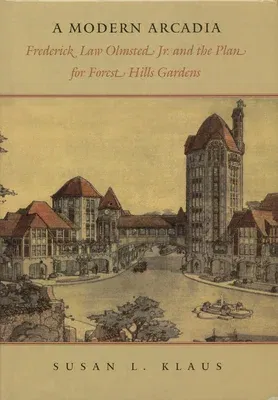Winner, Center for Historic Preservation Book PrizeWinner, New York City
Book Award for Landscape History Conceived as an experiment that would
apply the new "science" of city planning to a suburban setting, Forest
Hills Gardens was created by the Russell Sage Foundation to provide
housing for middle-class commuters as an alternative to cramped flats in
New York City. Although it has long been recognized as one of the most
influential planned communities in the United States, this is the first
time Forest Hills Gardens has been the subject of a book.Susan L.
Klaus's fully illustrated history chronicles the creation of the
142-acre development from its inception in 1909 through its first two
decades, offering critical insights into American planning history,
landscape architecture, and the social and economic forces that shaped
housing in the Progressive Era. Klaus focuses particularly on the
creative genius of Frederick Law Olmsted Jr., who served as planner and
landscape architect for the project. Drawing on his father's visionary
ideas but developing his own perspective, the younger Olmsted redefined
planning for the modern era and became one of the founders of the
profession of city planning in the United States. "The scholarship in
this work is exceptionally thorough. . . . A Modern Arcadia will make a
significant contribution to the fields of landscape and planning
history."--Cynthia Zaitzevsky, author of Frederick Law Olmsted and the
Boston Park System "A Modern Arcadia illuminates the fascinating
intersection of social and aesthetic reform movements in the Progressive
Era, as well as the early career of a prolific and influential planner
and landscape architect." --David Glassberg, author of Sense of History:
The Place of the Past in American Life

